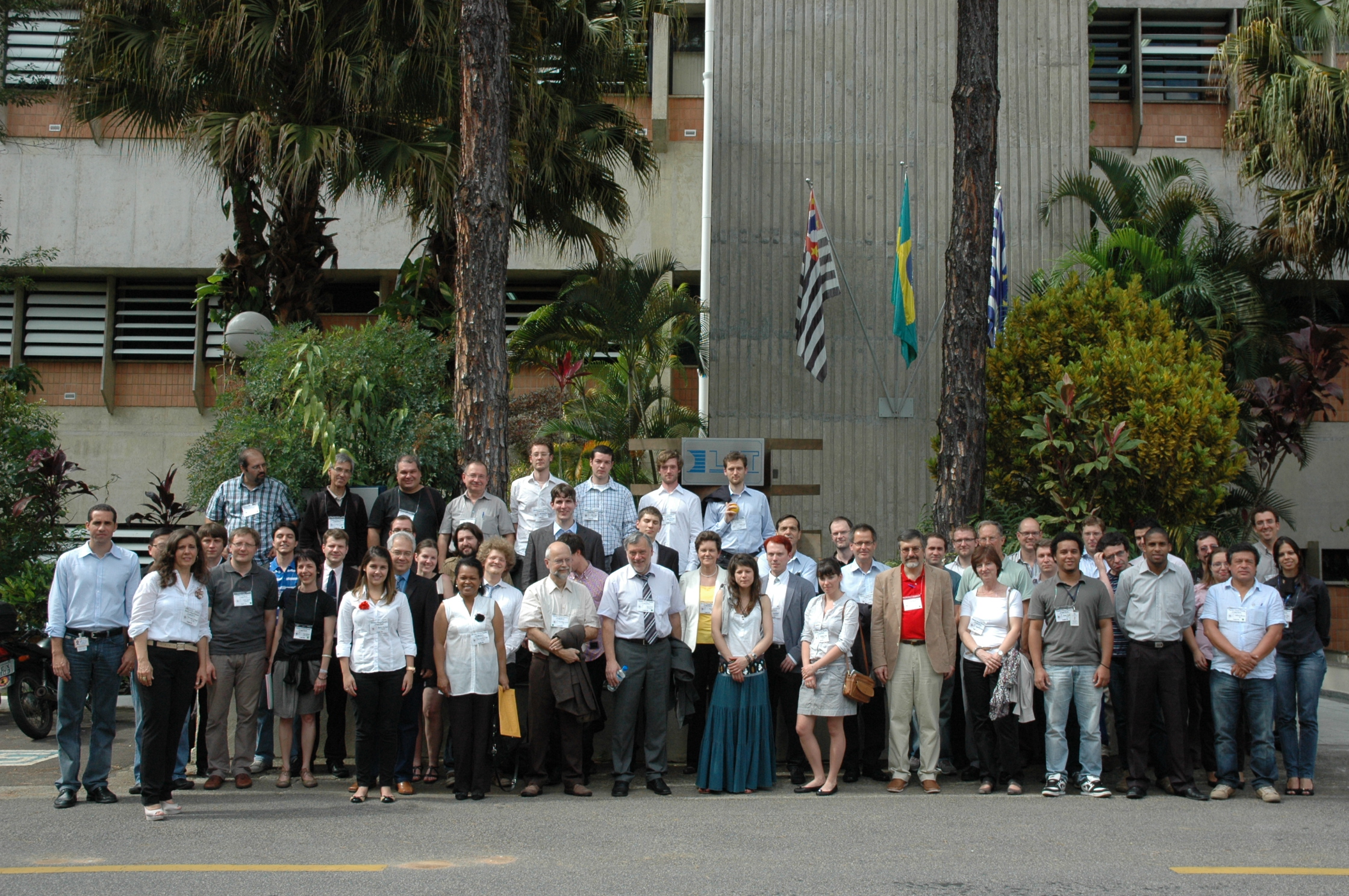Opening of the First German-Brazilian Research Training Group “Dynamical Phenomena in Complex Networks”

Participants in the opening workshop for the first German-Brazilian Research Training Group
© INPE
(04/26/12) The first German-Brazilian Research Training Group, “Dynamical Phenomena in Complex Networks”, commenced operations with a workshop held from the 2nd to the 4th April 2012 at the Brazilian National Institute for Space Research (INPE) in Sao José dos Campos. The RTG is funded jointly by the DFG and its Brazilian partner organisation, FAPESP. In the DFG’s programme structure, this collaboration is designated an “International Research Training Group” (IRTG). FAPESP considers it a “Projeto Temático”.
After welcome addresses given by the Director of the INPE, Professor Gilberto Câmara; the consul and cultural attaché of the Consulate General in Sao Paulo; Professor Euclides Mesquita Neto, a representative from FAPESP, and Dr. Karin Zach from the DFG, the two coordinators of the Research Training Group, Professor Jürgen Kurths (Humboldt University of Berlin/Potsdam Institute for Climate Impact Research) and Professor Elbert E.N. Macau (INPE) introduced the IRTG’s topic. The first German-Brazilian Research Training Group will bring together physicians, mathematicians, biologists, climatologists and geographers from both countries to research networks with complex topology. This work will enable complex systems in many scientific disciplines to be analysed. One main aim is to achieve a better understanding of the Earth’s subsystems under changing conditions. To do this, the team will focus particularly on influencing factors such as global warming and land use change in the Amazon region. A key feature of the Research Training Group is the joint instruction of German and Brazilian doctoral researchers, who will work on the IRTG’s various projects. The first generation of early-career researchers has already been largely selected, and many of them attended the inaugural workshop.